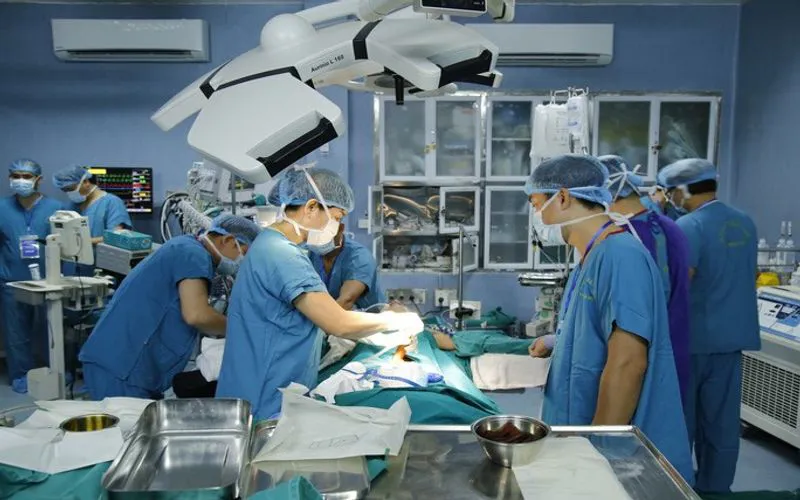Vietnamese doctors carry out first-ever intestine transplants from live donors
The biggest difficulty in intestine transplantation is connecting arteries and veins to nourish the transplanted organ.
First-ever successful intestinal transplants were performed by doctors of 103 Military Hospital for two male patients in Hanoi.
With this achievement, Vietnam has become one of 22 countries in the world to successfully perform an intestinal transplant from a live donor, a highly complex technique. Globally, only around 1,000 such transplants have been done so far.
Vietnamese doctors carried out the two bowel transplants together with their colleagues from Japan’s Tohoku University Hospital. Photo: Hanoi's 103 Military Hospital |
Dr. Do Quyet, director of the Hanoi-based Military Medical University, said that before the surgery, the two patients had completely lost their digestive function and received parenteral nutrition.
“If the patients do not have a bowel transplant, they could face a high risk of complications related to vein nourishment such as infection, liver damage, wasting, and death at any time,” said Dr. Quyet.
Doctors at Hanoi's 103 Military Hospital carried out the two bowel transplants together with their colleagues from Japan’s Tohoku University Hospital.
One 26-year-old male patient had peritonitis and developed near-total colonic necrosis, and had his small intestine almost completely removed.
He was treated and fed intravenously, but he developed a metabolic liver condition associated with dysfunctional bowel syndrome. On October 27, nearly 100 doctors and other medical staff carried out the transplant, with the intestinal donor being his biological mother.
The second patient is a 42-year-old man who earlier had five abdominal surgeries for peritonitis due to intestinal perforation, including one to remove most of his small intestine in May 2007. Only around 80 cm of his intestine remained.
He had surgery a day after the first patient did. His brother was the donor.
Both donors are in stable condition while the recipients, whose survival indicators are stable, are being carefully monitored.
Dr. Quyet said the biggest difficulty in intestine transplantation is connecting arteries and veins to nourish the transplanted organ. There is a higher risk infection and organ rejection than in other organ transplants, and taking care of the two patients post-surgery would be a challenge.












